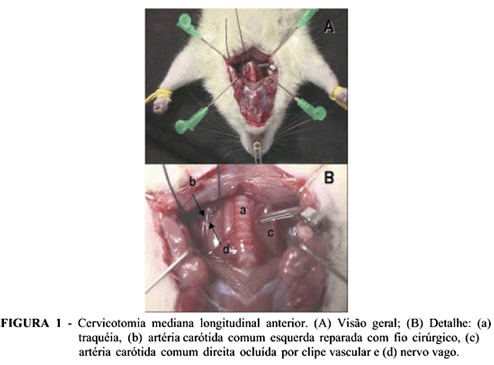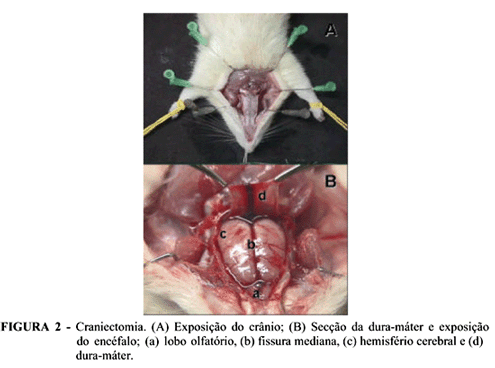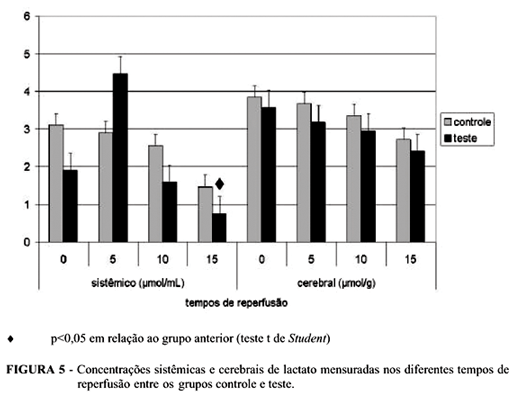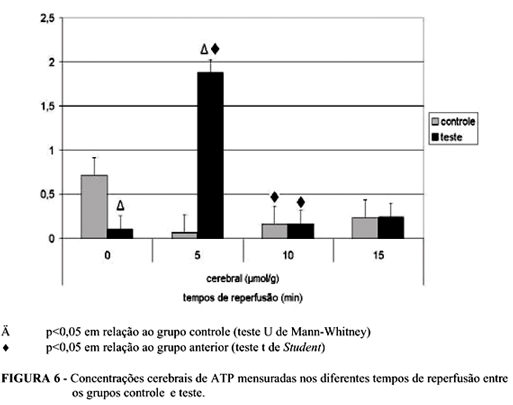PURPOSE: To describe alterations on the energy metabolism after cerebral ischemia/reperfusion, through an experimental model of reversible global ischemia, by simple occlusion of common carotid arteries (CCAs) in rats of Wistar lineage. METHODS: Forty-eight male Wistar rats were randomly distributed on two groups (C - Control; T - Test) and further redistributed into four times sets of study. After bilateral occlusion of CCAs for 30min, the animals of group T were allowed reperfusion for 0, 5, 10 and 15min. Samples of cerebral tissue and systemic arterial blood were collected and the metabolites D-glucose (GLI), pyruvate (PRV), lactate (LCT) and adenosine triphosphate (ATP) quantified. RESULTS: Increases of GLI and PRV blood values of, respectively, 85,00% (p<0,05) and 51,72% (p<0,01) were observed at 5min of reperfusion, which reflect a systemic response to the cerebral ischemia. The brain's LCT remained stable despite a reduction of 52,66% (p<0,05) in its blood concentration at 15min of reperfusion. The cerebral concentrations of ATP decreased 85,40% (p<0,05) after ischemia, followed by an augmentation of 3.033,40% (p<0,05) at 5min of reperfusion, becoming evident the recovery of cell respiration by fosforilation pathway. CONCLUSIONS: The proposed experimental model produced partial transitory global ischemia, with systemic repercussions. The greatest metabolic alterations were verified in the initial minutes of reperfusion, typifying reperfusion injury. Such observations prove its value as an important instrument in the study of physiopathology and therapeutic sources of ischemic cerebrovascular disease.
Brain ischemia; Reperfusion; Metabolism; Rats






